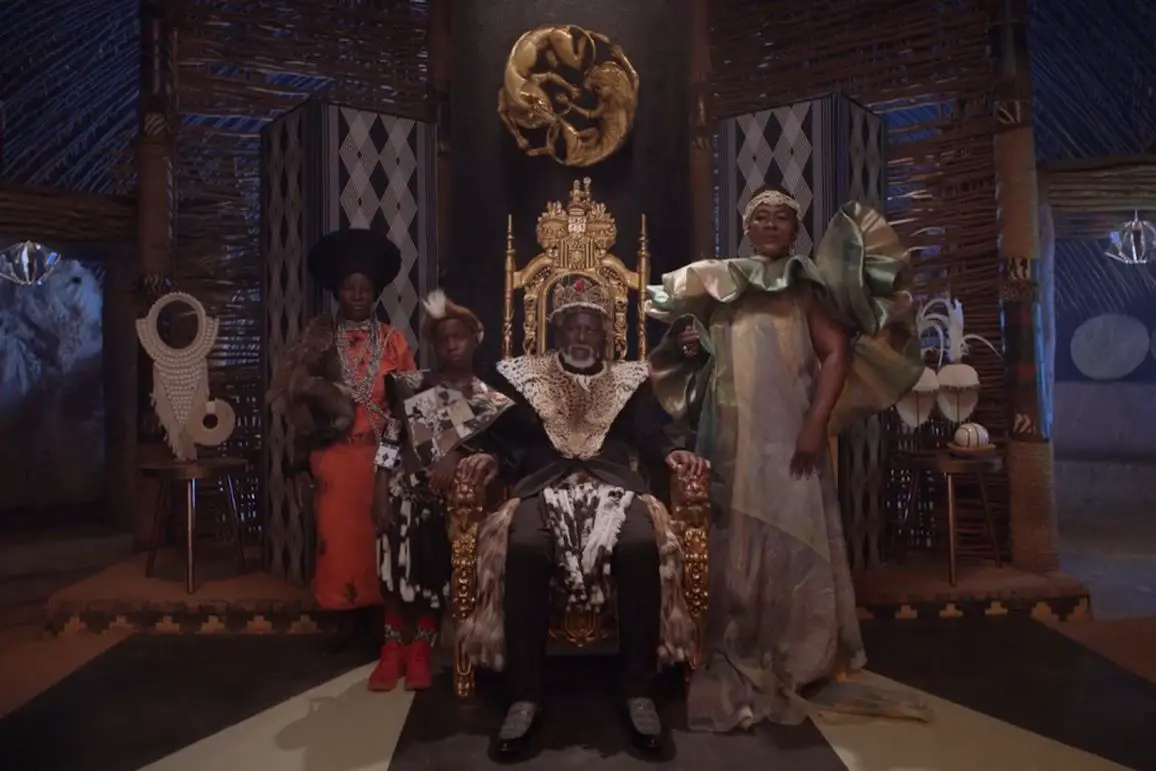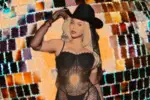If you have plans on July 31, cancel them. It’s time to get in formation for a new Beyoncé project on the way. If you’re a Beyoncé fan (or a member of the elite Beyhive), then you’ve probably heard that the queen is arriving on the streaming service Disney+. The musical icon is set to release her new visual album, “Black Is King,” on July 31. The project was inspired by 2019’s live-action remake of “The Lion King.”
The album will be Beyoncé’s third visual album to date, the previous two being “Lemonade” and the self-titled “Beyoncé.” It is also expected to celebrate Black culture, as she has written, directed and served as executive producer.
Disney said in a statement that “Black Is King” “is a celebratory memoir for the world on the Black experience.” This memoir will also be based on the music from “The Lion King: The Gift,” and will star some of the album’s featured artists as well as host special guest appearances.
Disney and Parkwood Entertainment also said, “The film is a story for the ages that informs and rebuilds the present. A reunion of cultures and shared generational beliefs. A story of how the people left most broken have an extraordinary gift and a purposeful future.”
Those who are familiar with Beyoncé’s work understand that her dedication and ambition does not end with music. From her numerous charity donations to her stance against police brutality, Beyoncé continually uses her platform to uplift her community as well as represent aspects of Black culture and history.
Which is exactly what “Black Is King” is set to do.
Judging from the trailer, released on June 28, there is no doubt that the project will be culturally awakening. As we watch the trailer, it literally feels like a journey. Beyoncé carries us through what feels like different parts of Africa as a deep voice questions, “Who are you?”
The project feels like it may be one of Beyoncé’s most profound works of art. In the trailer we also see several symbolic forms of water, while she reminds us, “The ancestors never left you.”
The queen is known for using symbolism to convey her messages in a way that goes beyond the vocals. The significance of the water, for example, is that it is believed to hold memory.
“Black Is King” follows the voyages of Black families throughout time. It will tell “a tale about a young king’s transcendent journey through betrayal, love and self-identity,” Disney said in a press release. The young king’s loved ones help guide him to reclaim his home and throne.
The timeless lessons that will be revealed in the visual album will reflect Black voices today.
While some of us are ready to get in formation, “Black Is King” has sparked controversy among members of the African community because of its stereotypical portrayal of African cultures. In the trailer, for example, the characters are seen wearing animal skins and paint on their faces.
“With this visual album, I wanted to present elements of Black history and African tradition, with a modern twist and a universal message, and what it truly means to find your self-identity and build a legacy,” Beyoncé wrote on her Instagram.
But it wasn’t long before the post became flooded with criticism.
“This narrative is getting boring,” one user wrote. “We don’t wake up with white chalk on our faces or live in blue huts.”
Another added, “Africa has grown beyond what you just incorporated, Beyoncé.”
Many have viewed the trailer as less than an ode to Black culture and more of a stereotypical representation of Africa. Some have brought up the fact that while “Black Is King” explores the roots of Africa, Disney+ is not even available in some parts of the continent.
Twitter users also joined the debate about the album, wondering whether it will leave an impact, given the fact that the trailer seems to show only a one-dimensional portrayal of Africa.
In a Twitter thread, Paballo Chauke, a 29-year-old from Capetown, South Africa, expressed his frustrations. “Someone with the range must unpack how our beloved queen Beyoncé is reducing blackness and Africanness to aesthetics and the western imaginations of our existence,” he wrote. “They must also speak about how it’s now profitable to do such gimmicks.”
Running to her daughter’s defense like a true mom, Beyoncé’s mother, Tina Knowles-Lawson, expressed that Beyoncé worked quite hard on the project and that her daughter has studied what is featured in the trailer.
She let the critics know that this was not an ordinary production; Beyoncé’s visual album came with the help of creative partners from Nigeria, Ghana and South Africa.
“Those who are criticizing the film (before they even see it) saying it’s unauthentic, upset that B doesn’t actually go to Africa or say that Bey is simply using African cultures for gain are wrong,” Knowles-Lawson wrote on Instagram.
Beyoncé was also accused of using African themes and imagery for an aesthetic touch, despite not even filming or performing in Africa. Critics mentioned that this was just another Western film project to profit off of Africa.
Once again Beyoncé’s mother was not having it. She took to Instagram again to point out that her daughter makes less money “with her Afrocentric content.” She says that when Beyoncé does a project like “Black Is King,” it is out of her own interest, and that Beyoncé studied African costumes and worked with actual African dancers, filmmakers and directors.
Knowing Beyoncé, the trailer may not cover the full extent of what “Black Is King” is all about. Perhaps the visual album will portray many aspects of Black culture and its African roots. And if the body of work is supposed to tell a story, then the trailer could have just been a peek into the very beginning, before modern times.
Putting the criticism that surrounds “Black Is King” aside — the discovery of self-identity and the beauty of the Black body is evident in her trailer. We should give it a chance before judging it based on a 70-second trailer.
















